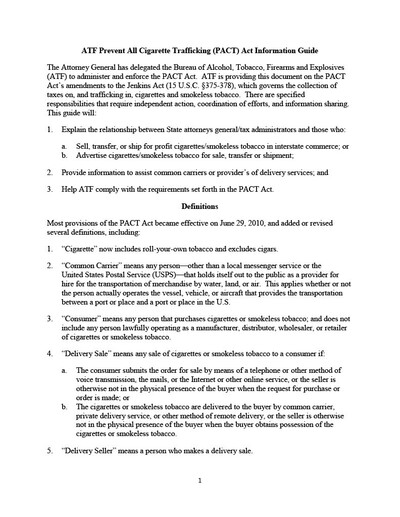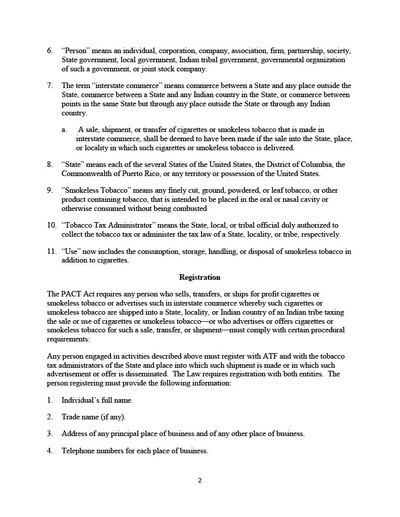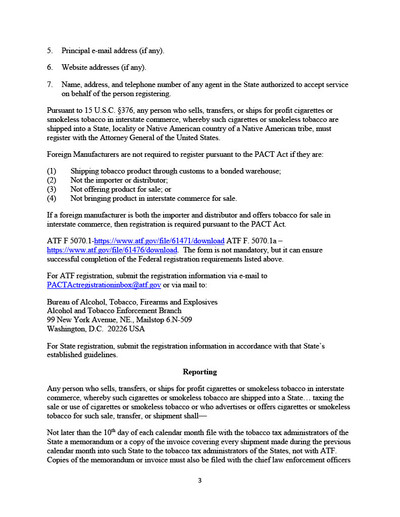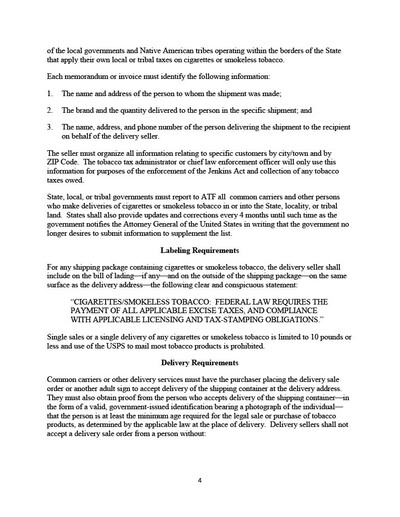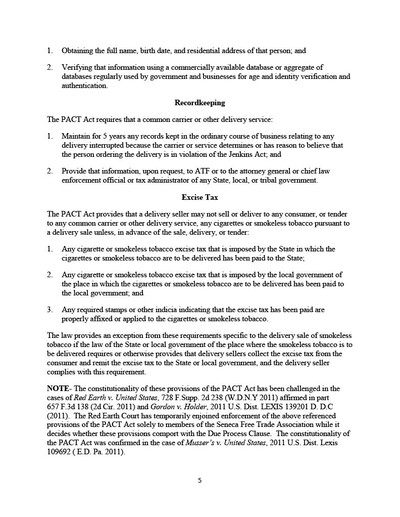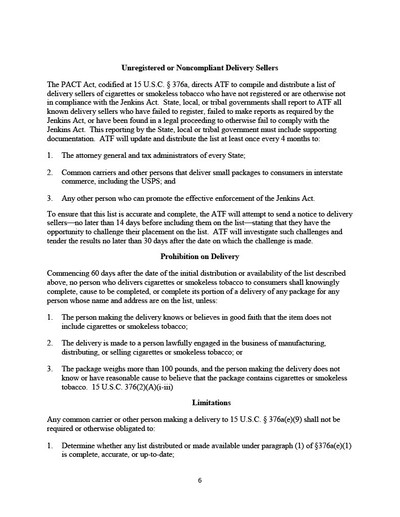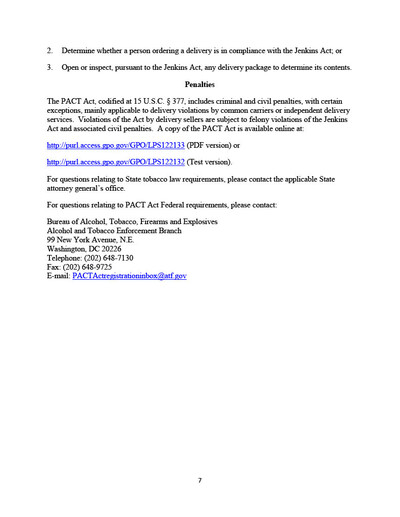PACT Act: Penalties and Procedures for Cannabis Companies
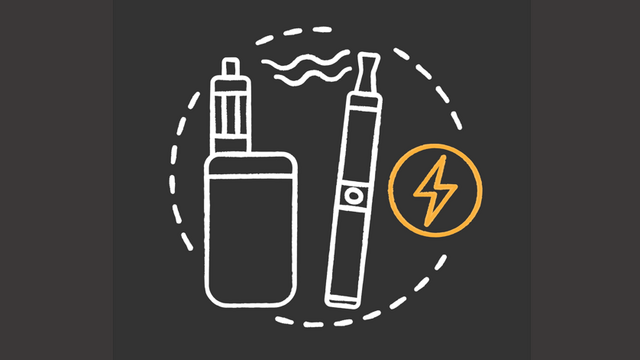
Recently, our office has been inundated with questions about how the Prevent All Cigarette Trafficking (PACT) Act will impact their businesses. The dust is far from settling on the PACT Act but the law is effective as of this writing. Failure to comply with the PACT Act can result in very serious consequences.
PACT Act 101
Before diving into the penalties for non-compliance, here is a quick breakdown of the PACT Act and its impact on cannabis-vapor products:
- In December 2021, Congress amended the Definition of “cigarettes” in the PACT Act to include “Electronic Nicotine Delivery Systems” or “ENDS.”
- Per the Amendment, ENDS is defined to include “any electronic device that, through an aerosolized solution, delivers nicotine, flavor, or any other substance to the user inhaling from the device,” including “an e-cigarette; an e-hookah; an e-cigar; a vape pen; an advanced refillable personal vaporizer; an electronic pipe; and any component, liquid, part, or accessory of a device described [above], without regard to whether the component, liquid, part, or accessory is sold separately from the device.”
- Because the definition of “cigarettes” now includes “ENDS” that are used with any substance, which presumably includes ENDS intended for use with hemp or marijuana, the PACT Act now applies to cannabis vapor products.
- The PACT Act imposes reporting, registration, labeling, and other requirements on anyone selling or shipping cigarettes, defined to include ENDS used with any substance.
- These products are now prohibited from being shipped through the USPS.
For additional background, check out our previous coverage on the PACT Act:
- You've Got Mail . . . Alternatives: Breaking Down the PACT Act's Impact on Cannabis Vapes
- It Just Got A Lot Harder to Ship Hemp and CBD Vapor Products
PACT Act Penalties
A knowing violation of the PACT Act can carry a three-year prison sentence and can result in a $5,000 fine for the first offense and a $10,000 fine for subsequent offenses. (15 USC 377.) Additionally, sellers can be fined in an amount equal to 2% of the gross sales of “cigarettes” (which, again, includes ENDS used with any substance) for a one-year period ending on the date of the violation.
These penalties are significant and therefore the risk of noncompliance is nothing to take lightly. The federal agency that enforces the PACT Act is the Bureau of Alcohol, Tobacco, Firearms, and Explosives (ATF). It remains to be seen how the ATF is going to handle the now-broad definition of cigarettes, considering that marijuana remains illegal at the federal level and there is not a clear regulatory framework under federal law for smokable hemp products.
Cannabis entrepreneurs have some experience in dealing with the feds despite federal prohibition. The Internal Revenue Service (IRS) has worked with legal marijuana businesses for years to ensure that the US government gets its cut of the billions of dollars spent on marijuana each year in states where it has been legalized. The Food and Drug Administration (FDA) and Federal Trade Commission (FTC) have both made their presence felt in the hemp-derived CBD space, by sending warning letters and, in some cases, issuing fines to companies that sell and market CBD products. Unlike the IRS, FDA, and FTC, the ATF is a traditional law enforcement agency more akin to the Drug Enforcement Administration (DEA). There is really no telling how the ATF is going to work with hemp and marijuana businesses in light of the changes to the PACT Act.
ATF and the PACT Act
Although there is no crystal ball that can show us the future of ATF enforcement, we can learn from how the agency has dealt with the PACT Act with regards to tobacco products. Below is a non-binding guidance document from the ATF on the PACT Act. You can download it here or view below. While this guidance document may not answer the myriad questions on the PACT Act, it’s a good summary of how PACT Act compliance should look.
In the meantime, we will continue to monitor the situation and update our readers on the Green Light Law Blog.
You can contact Daniel Shortt at info@gl-lg.com or 206-430-1336.
